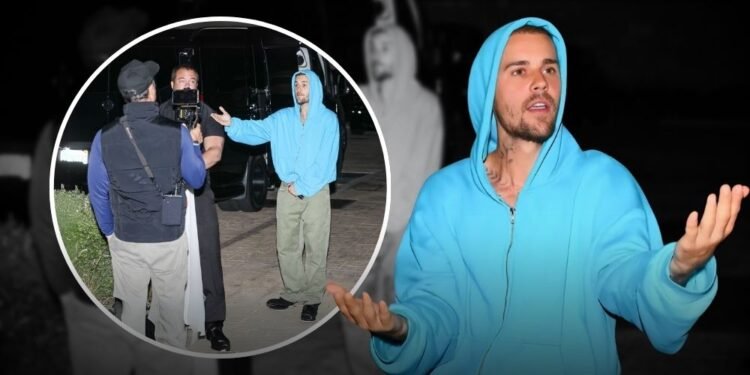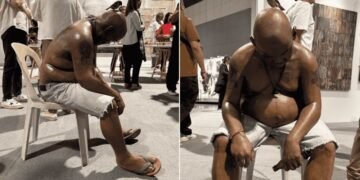In recent weeks, Justin Bieber’s increasingly erratic public behavior has reignited conversations about the psychological toll of celebrity culture.
A combination of viral video confrontations, explosive social media posts, and cryptic emotional outbursts suggests more than momentary frustration — it points to a deeper unraveling.
The spectacle of a global pop icon becoming increasingly reactive under the scrutiny of cameras has prompted legitimate questions: What is happening to Justin Bieber, and is the public witnessing a breakdown in real time?
The most visible flashpoint came during a tense altercation with paparazzi at a Malibu beach parking lot, where Bieber was filmed shouting angrily:
“It’s not clocking to you that I’m standing on business… I’m a human fckin being standing around my car AT THE BEACH. Idk who the fck is paying to provoke me, but I’m not the f*cking one.”
The language was raw, defensive, and laced with paranoia — and while some fans applauded his stance against invasive tabloid culture, the statement also exposed a man clearly on edge.
To contextualize the outburst, it’s important to understand that this wasn’t an isolated moment. In the days following, Bieber posted screenshots of an intense text message exchange in which he ended a friendship by asserting that he had been “walking through fire” and could no longer tolerate even minor slights.
He wrote, “I’ve allowed anger to be a part of me. It’s a way I’ve responded to pain that I never dealt with.”
The texts, widely shared and dissected online, show a celebrity both self-aware of his emotional volatility and simultaneously unable to control its public fallout.
What makes this spiral particularly complex is its convergence with external stressors — including potential links to the widening legal scandal surrounding Sean “Diddy” Combs.
Bieber was long seen as an industry protégée of Combs, and while he has not been implicated in any allegations, sources close to the pop star say he was deeply disturbed upon learning of the charges.
He reportedly severed ties with Combs and has been advised to keep his distance from anyone connected to the mogul. Given Bieber’s early immersion into the industry as a teenage star, the emotional impact of betrayal by once-trusted mentors may be considerable, and not easily dismissed.
Psychologically, the patterns emerging in Bieber’s behavior are not dissimilar to what mental health experts identify in cases of prolonged exposure to stress and unresolved trauma.
His early career was marked by rapid fame, loss of control over personal boundaries, and media scrutiny bordering on dehumanization.
In such conditions, the repeated experience of being watched, judged, and misrepresented often gives rise to defensiveness, mistrust, and emotional dysregulation — all of which now appear publicly evident.
Moreover, Bieber’s statements suggest a perception that he is being targeted — “I don’t know who the f*ck is paying to provoke me” — which hints at paranoia, or at least a belief in coordinated antagonism.
Whether this fear is rooted in real experiences or psychological projection is difficult to determine, but the language he uses implies that he sees the world as hostile — and himself as a lone figure standing “on business,” protecting dignity, family, and mental equilibrium in an industry that often strips all three.
None of this unfolds in a vacuum. Celebrity meltdowns are often interpreted through a lens of ridicule or spectacle, yet they frequently serve as canaries in the coal mine of a broader mental health crisis in entertainment.
Bieber is hardly the first public figure to buckle under the weight of celebrity expectations, but his long history in the spotlight — from adolescence to adulthood — makes his case particularly poignant.
This is not simply a “crazy celebrity moment”; it is the visible unraveling of a man who appears to be struggling with boundaries, identity, and trust, in a world that monetizes his visibility.
In the end, Justin Bieber is both a product and prisoner of a culture that elevates talent but punishes humanity.
His recent behavior may look “crazy” from the outside, but it is more accurately a reflection of an unsustainable pressure cooker — one where fame, trauma, betrayal, and constant surveillance have begun to combust in plain sight.












